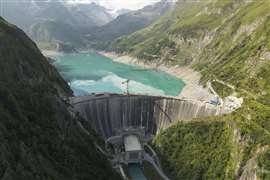Editor's Comment: New appraoch needed to corruption
03 August 2012
.gif)
It must have been with mixed emotions that the World Bank withdrew its US$ 1.2 billion loan from the badly needed US$ 2.9 billion Padma Bridge in Bangladesh, but it sends a strong message that corruption is being taken seriously. It has to be said that the World Bank has not always been as rigorous in fighting bribery as it could have been, although its stance has become much stronger in recent years. I hope it will take further, more proactive steps in the future.
In terms of enforcement, the number of contractors being debarred by the World Bank for corrupt practices is rising. As well as its own work on this, the wider development bank community has had a more co-ordinated approach to the problem, with an agreement signed in 2010 that means a contractor debarred by one institution can be made ineligible for work funded by any of the major multi-lateral banks.
And the Padma Bridge is not the first case in recent years where the World Bank has withdrawn funding because of compliance concerns. In February last year it cancelled a risk guarantee to the Nairobi Toll Road in Kenya because of weak governance on the project.
But the Padma Bridge is an altogether higher profile case and one where the smell of corruption has grown stronger and stronger. Last September the World Bank referred concerns about employees of SNC Lavalin, which had bid to be the client's engineer on the scheme, to Canadian authorities. That led last month to two former company executives appearing in a Toronto court to face charges of bribery and corruption of a foreign official.
The case is yet to reach its conclusion, but with what the World Bank described as, "Credible evidence corroborated by a variety of sources," that corruption took place, it was left with few options but to withdraw its loan. And to give the Bank its due, it first tried to keep the project on track through a different procurement process, but said the government of Bangladesh was not taking the corruption issues seriously enough.
Not wishing to judge before the case is heard, but this does undermine Bangladeshi finance minister Abul Maal Abdul Muhith's repeated claims that the corruption claims are "Baseless."
And I imagine there must have been regret at the World Bank at having to take these steps. If it had gone ahead, the Padma Bridge looked set to make a real difference to Bangladesh's development.
But as encouraging as it is that the World Bank is clamping down on corruption, debarments and withdrawing funds remain reactive measures after bribes have been paid. I would like to see it move to a more proactive approach, with all contracts awarded being open to public scrutiny, including the method by which competing bids were assessed. It is an approach advocated by the Construction Sector Transparency (CoST) initiative - the idea being that with transparency in public procurement, there is nowhere for bribe takers and payers to hide.
STAY CONNECTED


Receive the information you need when you need it through our world-leading magazines, newsletters and daily briefings.
CONNECT WITH THE TEAM











